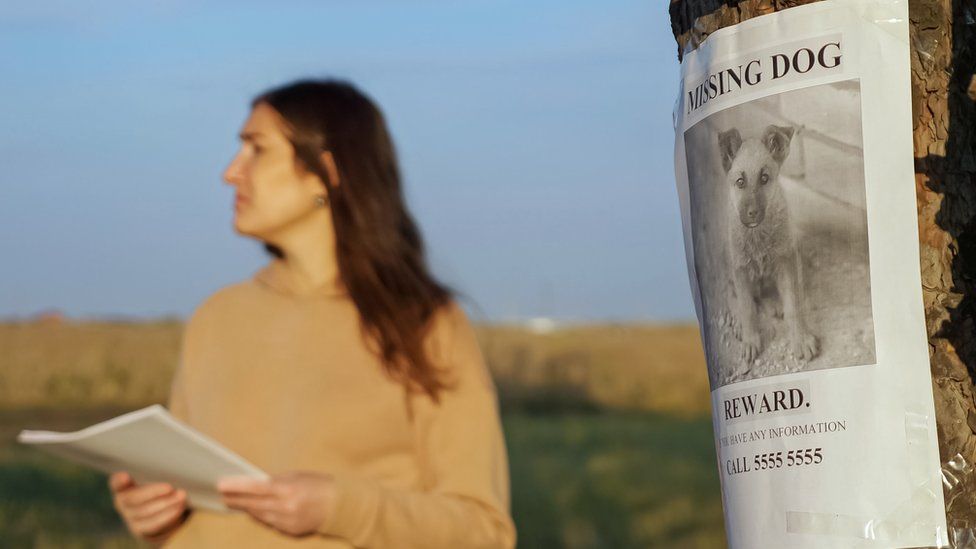
 Image source, Getty Images
Image source, Getty ImagesThere was a spike in dog thefts during lockdown
DNA profiling is being used by police to sniff out stolen dogs in Wales.
Dogs must be chipped for identification by law, but these can be lost, stolen or removed, while DNA is tamper-proof.
Dyfed-Powys Police has introduced the measure after a spike in thefts during the Covid-19 lockdown.
The force believes its new database – the first of its kind in Wales – will be able to reunite stolen dogs with their owners.
Insp Reuben Palin said: “The DNA in the dogs is linked directly to the dog, it can’t be changed.
“So if we do a warrant, or if the RSPCA come across dogs anywhere in the country, anywhere in the UK, we can run tests on those dogs’ DNA to see whether or not they are a stolen dog.”
Insp Palin said he believes the system and the threat of imprisonment will deter people from trying to steal pets.
“If a criminal has stolen a dog locally, and we’ve got this system in place, and we have strong evidence the person has stolen that dog through the DNA, there’s custodial possibilities for that,” he told BBC Wales’ X-Ray.
The scheme is run by Cellmark Forensic Services, a firm based in Abingdon, Oxfordshire, which has provided forensic science services to police for 30 years.
Tina Hooper is considering getting Bailey the cockapoo tested
While tests will cost dog owners about £75, Insp Palin said the fee was worth it.
He said: “As soon as a dog gets stolen somewhere, the anxiety of the community increases. If the community takes it seriously, we take it seriously.
“I wouldn’t want anything to happen to my dog, so I’d implore anybody to take an opportunity to have their dog DNA tested.”
The scheme works by owners getting their dogs tested and sharing the information with the police.
If a lost or stolen animal is found, police can check its DNA and return it to the owner.
Dog owner Tina Hooper, from Carmarthen, thinks it could be a good idea and would consider getting her cockapoo, Bailey, tested.
She said: “Dogs can be pinched and the chip can be taken out. [DNA testing] is just safer.”
The tests can also be used to discover a dog’s family history.
“My mum has a rescue dog so it would be good to know what breeds are there,” Ms Hooper said.
Insp Reuben Palin believes the DNA database could deter thieves
Some companies offer profiling so owners can discover the breeds that make up their pets, find dog family members and learn whether an animal is at a higher risk of health problems.
Dr Kevin Jones, of Carmarthen’s Seren Vets, said: “Most people are trying to find out about the mother and father.
“Sometimes when we’ve got a rescue dog we’re guessing, but a lot of people are coming back with test results now and they are showing us things we didn’t expect.”
Learning a dog could be at risk of a disease could prove useful.
“If the test comes back and there are things you’re concerned about, it may be worth taking that to your vet and have them go through it to put your mind at rest,” Dr Jones said.
For more on this story, watch X-Ray on Monday at 20:00 GMT on BBC One Wales and iPlayer.
- X-RAY: The team are back, fighting for your rights!
- THE BESTEST BITS: A little bit more of what you like from Wynne Evans














